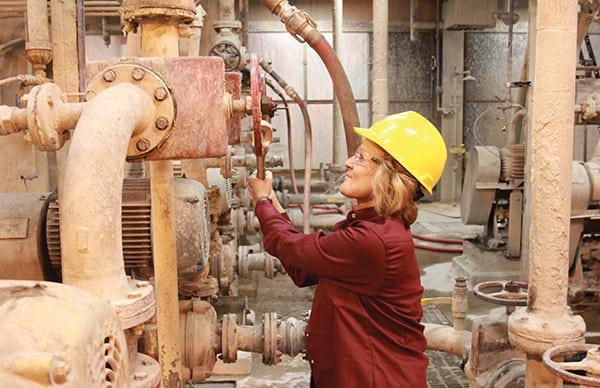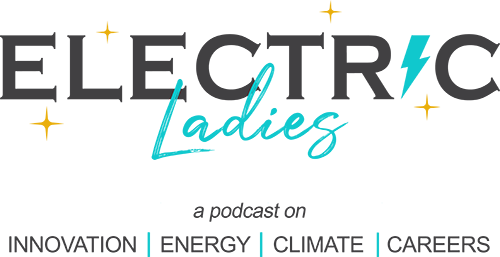The pandemic has caused millions of people, especially women, to rethink their careers. It may have been stimulated by all that time working from home, or the shift to remote work opening up opportunities in any location, or homeschooling their kids for months while schools were closed, or the joy they found in hobbies or side hustles. It’s no wonder that a Bankrate survey found 55% of people say they are looking to change jobs over the next 12 months.
This is especially true among people who want to use their skills and talents to address climate change and/or socio-economic inequities. More opportunities are opening up in these areas than ever before.
There are few industries where this is more evident than in the energy sector. From the major oil and gas companies like BP and Shell announcing net zero goals, to government agencies and private companies creating new positions, nonprofits gaining more influence, to entrepreneurs birthing new solutions, and the investors stepping up to fund them, there are plenty of new ways to think about your career today.
And more shifts are on the way, as companies, institutions and countries gear up to seize opportunities in the new U.S. infrastructure bills and to meet commitments made at the big UN Climate Conference known as COP26 starting on November 1.
So, where do you fit in amidst these changes?
What’s the best way to think about a career in energy today – especially as a woman in such a traditionally male-dominated field that’s being completely reinvented?
It may be hard to get your footing or to know exactly where you add value in all the chaos. Since energy companies and utilities cannot close for renovation like a restaurant can, this massive pivot is happening while they keep the power flowing. That makes it both exciting and confusing. It also opens up opportunities.
As Kathryn Pavlovsky, head of Deloitte’s Energy, Resources and Industrials practice, told me on my Electric Ladies podcast recently, “What I am finding is that the pandemic has motivated women to appreciate their experiences, the contribution that they can make going forward, and whether they are currently in the best position to be driving forward with those.”
She and her colleague on the other side of the energy spectrum, Kristen Sullivan, head of Deloitte’s Sustainability and Supply Chain Compliance, gave valuable insight into how to think about your next career move.
“The ecosystem is evolving.” Here are five advice highlights from these top women:
- “What is the role that women can play in particular?”: Pavlovsky asks this provocative question. “Even within energy and on the topics of environmental, social, and governance, what is the role that women can play in particular, in moving forward that agenda and driving earlier results?” Studies have found that women focus on making a difference with their work more than men do. Women leaders want status and power, and also are want their curiosity and their idealism nurtured.
- As both Pavlovsky and Sullivan point out, the shift to ESG – the environment, social and governance Pavlovsky referenced – enables women to work in energy and serve their idealism, depending upon how they do it.
- Apply your business competency “through a value-enhancing lens”: Sullivan emphasized something that a lot of people forget is the price of entry to a career: you have to be very good at something. Whether it’s finance, or marketing, or information technology, or human resources, or operations, for example, you need a core competency. Identify what you’re good at and then you can shift by “layering on a different perspective, whether it’s climate risk or societal considerations, to be able to deliver on that traditional competence but at such a higher level, and through that value-enhancing lens.”
- How can you do things differently?: Think about “what inspires you” and “what you love to do,” Pavlovsky explained, and then “coupling that with your experiences and then your relationship network,” can help you “think about: ‘how can I do things differently?’” I frame it to my coaching clients as putting the puzzle pieces of their skills, talents and experiences together in a new way to achieve their new goals.
- Look at options across geographies: A key shift that Pavlovsky sees in the transition to an ESG-focused economy, and in the energy industry’s “accelerating digital transformation,” is that the energy industry needs new skills. As she put it, “The ecosystem is evolving,” and the need for those new skills opens doors to women and other traditionally under-represented talent, including the option to work remotely.
- Find people you want to know: There are likely people in your network, no matter how small it may seem, who know someone who knows someone who can give you insight into the new area you want to explore and help you access new opportunities. Ask, ask, ask! Being shy will not get you what you deserve.
Your competency helps you “deliver trust,” as Sullivan framed what Deloitte does, based in the auditor disciplines.
Then, applying the values lens, you can ask, “What higher purpose can we have than applying our skills, our training, our competence to…drive value into the future?
This article first appeared in Forbes.com here.









